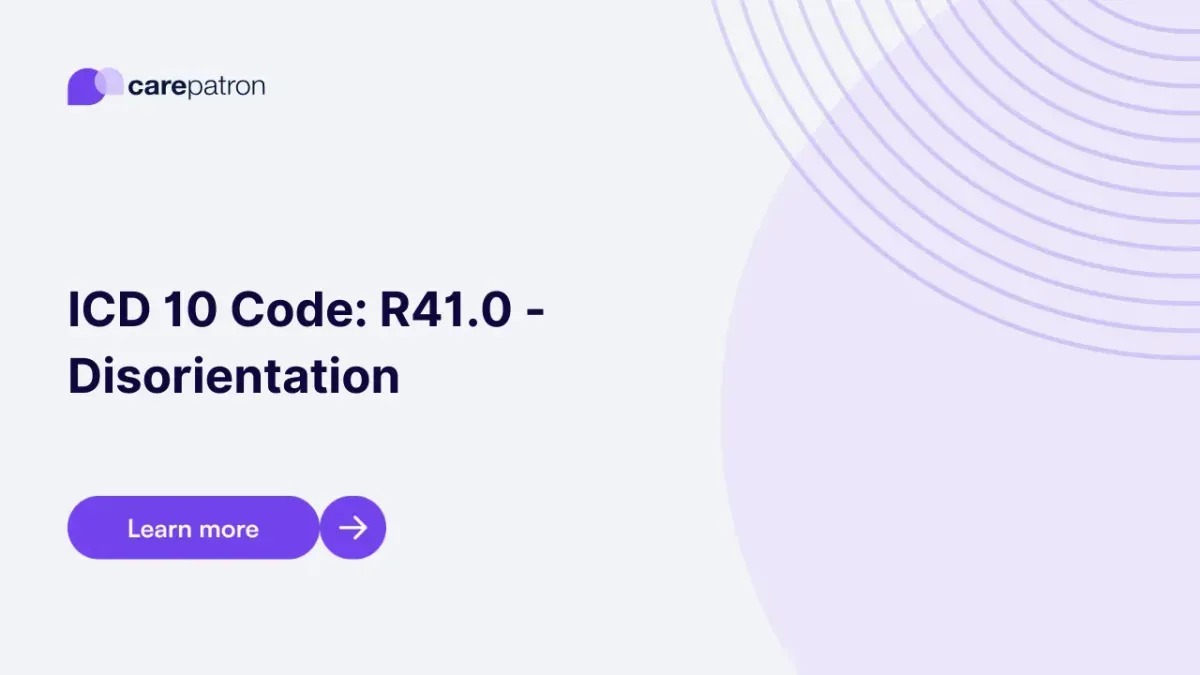
R41.0 Disorientation ICD-10-CM Codes
Dive into the 2025 ICD codes for R41.0 disorientation to understand this cognitive disturbance's billability and clinical information.
Use Code
Commonly asked questions
Disorientation unspecified (ICD-10 code R41.0) refers to a state in which a person is confused about their location, identity, or the current time, without further specification of cause or type. It is characterized by symptoms such as inability to recognize familiar people or places, trouble following directions, and altered awareness of time, often occurring suddenly and requiring medical evaluation.
The diagnosis code for cognitive dysfunction varies depending on the specific condition, but mild cognitive impairment, a common form, is characterized by noticeable memory loss and difficulties with language or judgment that do not significantly impair daily activities; it is considered an intermediate stage between normal aging and dementia.
Disorientation can be a sign of serious conditions such as delirium or dementia, which involve acute or chronic brain dysfunction. In contrast, disorientation is not always life-threatening. It often signals underlying medical issues requiring prompt attention to prevent further cognitive decline or complications.
EHR and practice management software
Get started for free
*No credit card required
Free
$0/usd
Unlimited clients
Telehealth
1GB of storage
Client portal text
Automated billing and online payments
